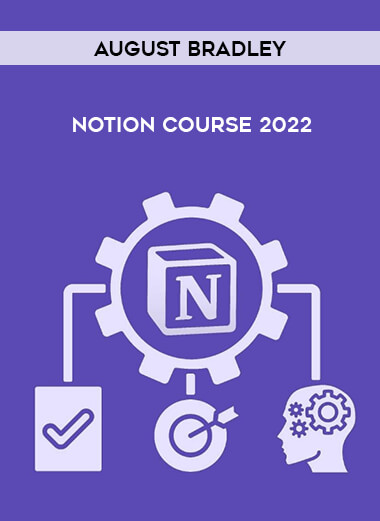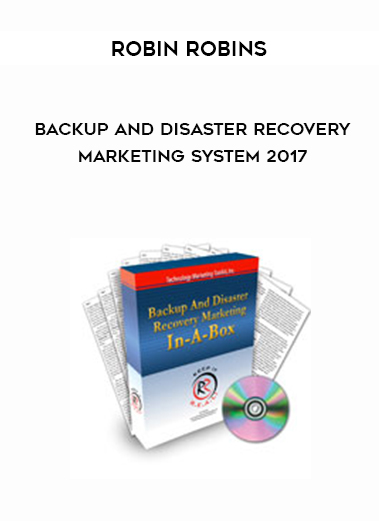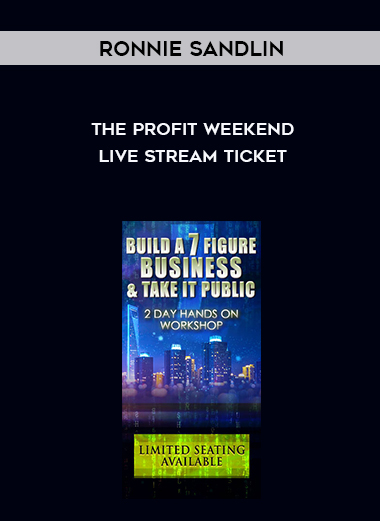Beyond Betrayal with Dr. Debi Silber

Arichive : Beyond Betrayal with Dr. Debi Silber
Dr. Debi Silber, Founder and CEO of the PBT (Post Betrayal Transformation) Institute, will lead a new 7-week live video training beginning Wednesday, April 13, 2022.
Can’t make it to the end? Following each lesson, video and audio recordings are made accessible for download and viewing at any time.
Receive a tried-and-true approach for mending betrayal, one that may mean the end of a fading light and the bright start of a more confident you.
Betrayed by someone you love and trust, or even someone you believed had your back, might feel like the end of the world.
You have no idea what is genuine and true – or who is real and true. It’s one thing not to trust the betrayer anymore. It’s quite another to lose faith in oneself.
What are your options now? Well, either reeling, heartbroken, or stranded.
Physically, you may be dragging, not sleeping (or sleeping excessively), gaining or losing weight, and/or experiencing digestive troubles. Your mental health may be a tangle of anxiety, sadness, brain fog, and other symptoms, with betrayal acting as its own type of trauma. Emotionally? The shock and astonishment, the overwhelm and hurt, the fury, it’s all so difficult.
These circumstances and states should not last for months, years, or even decades. That means feeling them and dealing with them right now.
Following two betrayals, one by a family member and the other by her spouse, holistic psychologist Dr. Debi Silber heard her professional calling amid her personal anguish.
Dr. Debi obtained her PhD in transpersonal psychology and founded the Post Betrayal Transformation Institute after focusing her research on what occurs after you are betrayed.
Dr. Debi, a blunt talker with profound empathy for individuals who have been wronged, tells it like it is in TEDx presentations, publications like Self, Shape, and Forbes, CBS television, and online at WebMD.
Dr. Debi has seen it over and again in her own life, study, and work with clients: betrayal may be the beginning of essential, joyful transformation…
… as well as the elimination of attitudes and dynamics that no longer assist your emerging as an open and trustworthy individual deserving of secure, quality partnerships.
It has the potential to be a doorway into your greatest potential.
Dr. Debi has investigated and produced five predictable stages of Post Betrayal Syndrome feelings and healing: Set-Up, Breakdown, Survival, Acceptance, and Rebirth.
Dr. Debi will meet you wherever you are in this 7-week live video course and guide you to the next step that will lead to a new version of yourself that could not have been without the betrayal.
This training is about you, not the other person or what they did to you. It is about you seizing this powerful chance to develop a new identity and let go of your identify as a victim. This inner transformation can naturally result in radically new outward dynamics and interactions.
This course will include a supporting combination of experiential exercises, demonstrations, journaling, and guided visualizations grounded in relevant analogies to help them stay, in addition to 7 weeks of profound insights that set the basis for your recovery with Dr. Debi.
It takes effort to recover from betrayal. Dr. Debi half-jokes that she should have Easy Now, Hard Later T-shirts produced. It’ll be easier afterwards. You don’t want to skim past the pain of betrayal just to have it persist in your system and appear as medical or psychological problems later on. You wish to entrust it to a tried-and-true psychological procedure.
“Everything I teach has an optimistic, transformative spin,” Dr. Debi adds, referring to her work as a method to reach soul-level learning. “If I’m talking about something serious, it’s because you have just as much of a chance to recover from it.”
Beyond Betrayal: 5 Healing Stages to Help You Trust and Love Again, it takes seven weeks and five stages to become a stronger, more confident you — a you who knows how to live and who you can trust.
During your transition from betrayal to more powerful self, you will:
Overcome what might feel like a lifetime of anger, despair, fear, and/or trauma as a result of betrayal.
Recognize that anxiety, sadness, and PTSD, as well as weight gain, digestive problems, poor sleep, low energy, and reduced attention, may be the result of a betrayal.
Learn about the long-term advantages of Hard Now, Easy Later against the immediate cure of Easy Now, Hard Later.
Quiet your unpleasant thoughts and ruminations about what happened so you may regain mental serenity and control.
Retrain your brain to redirect its focus away from who or what wounded you and toward the discoveries that await you on the other side.
As you move on from the betrayal, meet and grow into a new, stronger version of yourself.
Consider if you’ve outgrown some relationships and how to establish rewarding new ones that will help you develop.
Create boundaries and set goals so that you may feel empowered and confident.
When it comes to breaking or recovering your connection with your betrayer, decide what is best for you and your position.
Feel safe, open to love, and ready to trust again — and then find the guts to act appropriately.
Discover a new feeling of security, comfort, and enjoyment in life after betrayal.
What You’ll Learn in These 7 Weeks
Dr. Debi will help you through the key tools you’ll need to move past betrayal and into a more empowered, more confident self throughout this 7-week transformative intensive.
The Influence of Livestreaming Video
Dr. Debi’s lessons will be available to you via livestreaming video on any connected device. This link is simple to utilize and will increase the effectiveness of Dr. Debi’s broadcasts. You may also listen to simply the audio over the phone.
(Unable to make it live? Not to worry! Following each lesson, the video and audio recordings will be made available for you to download or stream in high quality at your leisure.)
This course will include LIVE presentations, interactive training sessions, experiential exercises, and questions and answers with Dr. Debi. Each session will build on the one before it, so you’ll have a comprehensive holistic grasp of the practices, tools, and concepts you’ll need to move past betrayal and into the strong person you’re meant to be.
Module 1: An Overview of Betrayal and Shattered Trust (April 13)
Betrayal affects your body, mind, and heart. When you’ve been let down by the one or persons you trusted the most, it’s natural to go for anything or whoever you believe would relieve your grief. Alternatively, you might do nothing and trust that time will heal the wound.
You risk being depressed, trapped, or unwell if you do not properly heal from this sort of trauma. Betrayal shakes your sense of self-worth, belonging, and worthiness. It instills sentiments of rejection and abandonment.
Because betrayal affects you on all levels, it must be repaired on all levels. There is an established and predictable plan for properly recovering from betrayal, and you will embark on it this session.
This module will teach you:
Define what betrayal is and what it does, learning about the various types of betrayal (family member, partner, friend, coworker, self, etc.) and why broken trust is so devastating.
Hear how betrayal causes you to doubt everything, and how what you’re going through is completely normal.
Investigate how an unresolved betrayal may influence your health, employment, and relationships.
Consider when and where your trust was first broken (it may not be where you think)
Examine how the betrayal shaped your current views and determine whether they are keeping you miserable, trapped, or unwell.
Module 2: Three Revolutionary Discoveries That Change Our Understanding of Betrayal (April 20)
Dr. Debi will show you how the game changers she discovered in her PhD research — Post Betrayal Transformation, Post Betrayal Syndrome, and the 5 Stages From Betrayal to Breakthrough — may become indispensable go-tos when applied to your scenario. Her study is reassuring in that it validates the regularity of healing; the entire physical, mental, and emotional consequences of betrayal; and how betrayal is a particular sort of trauma that necessitates a different strategy to recovery.
You’ll look at how an unresolved betrayal may be hurting your health, job, and relationships – and what you can do about it.
This module will teach you:
Get confirmation that this isn’t all in your head: Betrayal is a distinct sort of trauma, and treatment for it now has its own name: Post Betrayal Transformation.
Check your health and mental/emotional states against a list of symptoms so prevalent after betrayal that they’ve been dubbed Post Betrayal Syndrome.
Accept that, lest you remain trapped for years, decades, or even a lifetime, you must go through the known and predictable healing process. From Betrayal to Breakthrough in 5 Stages
Take this quiz to find out which signs of betrayal (even if it happened decades ago) may still haunt you.
Determine which of the five stages From Betrayal to Breakthrough you are in and how to proceed slowly, carefully, and cautiously.
Module 3: Stage One — Prioritizing Emotional and Spiritual Needs Over Physical and Mental Needs (April 27)
Consider the physical, mental, emotional, and spiritual legs of a table. It’s normal to rely excessively on one’s physical and mental legs while ignoring one’s emotional and spiritual ones. As a result, you become very adept at thinking and doing (using your intellect) but not so good at prioritizing feeling and being (tuning in to your heart).
With just two legs strengthened, it’s simple to see how the table topples, which is exactly what might happen if you’ve been betrayed. Stability is achieved by balancing the four.
This module will teach you:
Ask yourself four questions to determine whether you’re numbing, evading, or diverting yourself – none of which allow you to care for yourself or others, or answer your soul’s greater calling.
Investigate some of the most typical reasons you would seek out such activities, as listed above.
Make a pie chart of all the areas (work, kids, health, relationships, self, etc.) on which you focus during the day and determine what percentage of your time goes toward each. Learn how the mind takes a thought and transforms it into a belief over time, resulting in subconscious programming that is responsible for your actions, behaviors, and habits.
Use a powerful mind hack to generate a new set of subconscious beliefs from these old ones.
Module 4: Stage 2 — Body, Mind, and Worldview Analysis (May 4)
On “D-Day,” or Discovery Day, you get the news that will permanently transform your life. Your body, mind, and emotions are all shocked by the treachery. The shock activates your stress reaction. You can’t get your head around what just happened. Your worldview is cratering. You’re afraid, panicked, disoriented, confused, and desperate to feel better at this point.
It’s time to go past D-Day. Today’s lesson will focus on creating a self-care plan that will comfort and support you while also preparing you for long-term healing.
This module will teach you:
Investigate what occurs during this period and what you may do to deal with the waves of sorrow, despair, anger, and bewilderment.
Learn about the most typical symptoms left in the wake of a betrayal and how they can lead to illness and disease if left uncontrolled.
Learn how the appropriate sort of support may help you progress through this and later phases, but the incorrect kind can hold you back.
See how common it is to suffer and battle in quiet while protecting the betrayer and/or dealing with humiliation and embarrassment.
Be wary of concealing physical symptoms, which is analogous to placing a sticker over a car’s check-engine light, rather than treating the core problem.
Module 5: Stage Three – Emergence of Survival Instincts (May 11)
You’re whirling with questions in the aftermath of betrayal: “How will I endure this?” What should I do? Who can I rely on? In Stage Three, you figure out some of the answers and feel a lot better as a result.
As a result, Stage Three might be the most difficult to quit. Survival seems far superior to the shock and anguish from which you have just escaped, prompting you to exclaim, “Whew, I’m OK!”
The trouble is that you aren’t aware that Stages Four and Five are accessible to you, so you settle for thinking, “This is as good as it’s going to get; I’d best get accustomed to it.” When you believe it, a couple things happen:
Being in that area teaches you all kinds of modest self-benefits, such as the ability to be correct. Someone is to blame for your situation. Nice.
Then, since you feel less-than, worthless, undeserving, and unlovable, your energy attracts more of the same. The mind seeks to be proven correct, thus if those are your views, your mind will seek evidence to affirm them. If you weren’t already locked in Stage Three, this will keep you there.
You’re unhappy and don’t know how to make the pain go away, so you seek ways to numb, avoid, and distract yourself from the feelings — whether through food, drugs, alcohol, work, TV, staying busy, pleasing others, or perfectionism. While engaging in these “methods of mass distraction” may keep the feelings at bay, they do nothing to help you move through your discomfort; you’re simply trying to outrun it.
This module will teach you:
Learn why things may get worse before they get better and what it takes to get unstuck. Recognize the benefits of remaining stuck and how they may be enticing even if you want to move forward.
Validate your anger, sadness, pity, and compassion as progressive emotions that reveal your progression from one stage to the next. Consider taking a Hard Now, Easy Later approach that will pay off in the long run rather than the often subconscious Easy Now, Hard Later approach.
Accumulate the qualities, tools, and strategies required to exit this most enticing stage.
Module 6: Stage 4 — Identifying and Adjusting to a New Normal (May 18)
This week, you’ll look at the stage where you identify, accept, and admit that your former normal no longer exists.
You’ll discover that, while you can’t undo the betrayal, you can control how you react to it.
You will be assisted in creating a new space that is worthy and deserving of the new version of yourself that is emerging.
This module will teach you:
Examine specific connections to determine whether you’ve outgrown them — this is frequent as you progress from Stages Three to Four — and mourn those who have passed you by.
Prepare to purposefully seek out like-minded soul warriors with whom to grow. Discover how spirituality, faith, or religion may help reestablish trust and play an important part in ongoing healing and change.
Take your life story and compose the key next chapter as a logical new narrative.
Examine the willingness window to determine whether it is safe and in your best interests to heal and rebuild with the individual who has damaged you.
Module 5: Healing, Rebirth, and a New Worldview
The body begins to heal at this point. You’re putting yourself and your well-being first. Your mind, too, begins to recover. Based on what you observe today, you’re establishing new norms and limitations.
By this point, you’ve also acquired a new worldview as you reflect on all you’ve gone through and the path you’ve taken. You can see how far you’ve come. You’ve made the decision to heal. Isn’t it wonderful?
This module will teach you:
Consider a version of yourself that is healthy, healed, confident, strong, and happy — someone who feels safe and can trust and love.
Examine what actions, habits, and behaviors are required to get you to this version of yourself and create a personalized roadmap to get you there as soon as possible.
Consider the role of forgiveness in hastening your healing by discussing what not forgiving does to your body, mind, and heart.
Using a four-step strategy, rebuild damaged trust from the ground up.
Make a new connection with yourself and a new script for how you want people to treat you.






























